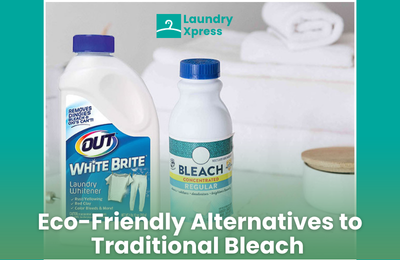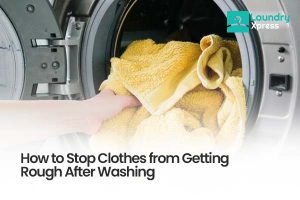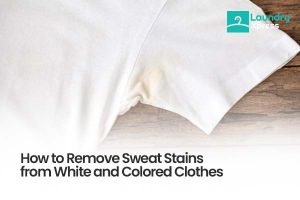Introduction
An increasing number of people are looking for eco-friendly bleach that acts as substitutes for traditional bleach. Although traditional bleach removes stains faster and brightens the clothes, it is not safe for daily use due to harsh chemicals and skin irritation. Are you tired of dealing with skin irritants, harsh chemicals that are harmful for the environment with the traditional bleach? You can get rid of this with environmentally friendly alternatives that are gentle towards your health and clothes as well.
Environmental Friendly Alternatives
Let’s explore some natural bleach alternatives to traditional bleach.
Hydrogen Peroxide
Although hydrogen peroxide has various uses around the house, it is a very powerful yet environmentally friendly all-purpose cleaner. It’s a terrific eco-friendly substitute for bleach because hydrogen peroxide doesn’t leave any harsh chemical residue on your surfaces. Rather, it breaks down to only oxygen and water.
How to Use it
- When doing laundry, add one cup of hydrogen peroxide to the load.
- Apply immediately to the fabric before washing for stubborn stains.
Baking Soda
Soda bicarbonate is alkaline in nature which enhances its effectiveness at removing food, oily, greasy, or mud stains from fabrics. This implies that it dissolves limescale and detergent residue, which are two things that might cause white clothing to turn gray. Its non-toxic and harmless to skin and environment resulting in sustainable laundry.
How to Use it
Add 1/2 cup of baking soda to increase the stain removal and freshness of your laundry detergent.
White Vinegar
Like baking soda, white vinegar’s acidity helps it dissolve detergent residue and limescale, which can cause white clothes to go gray. This characteristic makes it a fantastic, eco-friendly substitute for bleach. White vinegar is an inexpensive option because it’s also incredibly cheap and you can get bleaching clothes without any side effects.
How to Use it
Add 1 cup of white vinegar to your wash cycle, especially when cleaning white clothes or removing persistent odors.
Lemon Juice
Lemon juice has an acidic quality just like vinegar. Actually, the citric acid in lemons brightens dull whites and helps dissolve stains on white garments. The cost of this eco-friendly bleach is higher than that of vinegar or baking soda. On the other hand, this is a terrific method to use up excess lemons while taking care of your clothes.
How to Use it
Soak stained clothes for thirty minutes before washing, squeeze the juice of one lemon into your laundry load or combine it with water.
Sunlight
Ultimately, there’s nothing more environmentally beneficial than using solar power to keep whites clean and eliminate organic stains from white clothes, and ensure green laundry.
Just lay your just clothes out on your clothes line on a bright day to use the sun as a bleach substitute. Make sure the sun is shining on any stains. In the meantime, make sure the garments are turned the correct way out to brighten and whiten them. Let the sun do the drying work while you kick back and leave them there!
How to Use it
After washing, hang your clothes outside in direct sunlight for a natural brightening effect.
Conclusion
If you want to secure your health and clothes, go for natural bleach alternatives like hydrogen peroxide, vinegar, lemon juice and Sun which removes stains giving your clothes a bright look. If you want clean clothes without any struggle, choose professional laundry services that remove stains from fabrics more easily.
FAQs
1- Which is the most effective eco-friendly alternative?
Baking soda is the most effective eco-friendly alternative as it’s easily available at home. Its non-toxic nature leads to sustainable laundry.
2- What is green laundry?
It’s an environmental practice to use eco-friendly products for washing stained clothes.
3- Will eco-friendly substitutes work the same as traditional bleach?
Yes, it works the same, even better than the traditional bleach without causing any harm to the skin.





